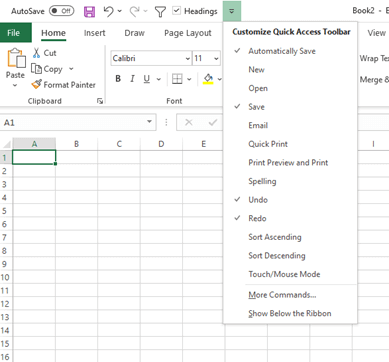5 Proven Ways to Excel Web Scraping Simplified

Web scraping has become an essential tool for data acquisition in today's data-driven world. Whether you're collecting data for research, competitive analysis, or business intelligence, mastering web scraping can give you an edge in data collection efficiency. Here, we'll delve into five proven ways to excel at web scraping, making the process simpler and more effective for beginners and experts alike.
1. Use Robust and Scalable Scraping Tools
The first step to excel at web scraping is to choose the right tools. Here are some options:
- BeautifulSoup and Requests: If you’re using Python, BeautifulSoup paired with the Requests library is a great starting point. It’s intuitive for parsing HTML and XML documents.
- Selenium: For dynamic websites where content loads via JavaScript, Selenium can handle browser automation to scrape data.
- Scrapy: Known for its scalability, Scrapy is ideal for large projects where speed and efficiency are crucial.
- Octoparse: A user-friendly scraping tool suitable for those without coding skills, providing a graphical interface to design scraping rules.
💡 Note: When choosing tools, consider the complexity of the websites you plan to scrape, your comfort with programming, and the scale of your scraping needs.
2. Understand and Respect Website Policies
Before you start scraping:
- Check the robots.txt file of the target website to understand allowed scraping behavior.
- Be aware of and comply with the site’s terms of service to avoid legal issues.
- Practice ethical scraping by not overloading servers or disrupting service.

| Website | Does it Allow Scraping? | Comments |
|---|---|---|
| Example.com | Yes | Only non-commercial use |
| Example2.com | Partially | Some pages are blocked in robots.txt |
3. Employ Smart Rate Limiting and Timeouts
To ensure you’re not banned from websites and to simulate human-like behavior:
- Implement rate limiting to control how frequently requests are made to a website.
- Use random delays between requests to avoid detection.
- Set timeouts for your requests to handle unresponsive servers gracefully.
4. Handle Anti-Scraping Measures
Websites often employ anti-scraping tactics to protect their data:
- User Agent Rotation: Change your browser user agent to mimic different browsers or devices.
- Headless Browsers: Some websites detect Selenium; consider running a headless browser to bypass detection.
- Proxy Servers: Use proxies or VPNs to hide your IP address, making it harder for sites to detect scraping.
- Captcha Solving Services: If CAPTCHAs are a frequent hurdle, automated CAPTCHA solving services might be necessary.
🔐 Note: While these tactics help circumvent anti-scraping measures, always ensure that your methods comply with legal standards and the website's terms of service.
5. Data Cleaning and Structuring
Once you’ve scraped the data, cleaning and structuring it for analysis is crucial:
- Use libraries like pandas for data manipulation in Python.
- Implement regular expressions for pattern matching and text extraction.
- Data validation to ensure the data’s integrity.
- Consider using APIs for real-time data updates if available.
To summarize, excelling in web scraping involves using the right tools, understanding and respecting website policies, implementing smart rate limiting, overcoming anti-scraping measures, and ensuring your scraped data is clean and ready for analysis. By following these five approaches, you can make web scraping not only easier but also more effective, enabling you to harness the power of data efficiently. Remember, ethical scraping benefits both you and the websites you're scraping from by maintaining a healthy internet ecosystem.
What is web scraping?
+Web scraping is the process of extracting data from websites. It involves fetching web pages, parsing their content, and collecting the desired information in a structured format.
Why is rate limiting important in web scraping?
+Rate limiting helps to prevent overwhelming a website’s server with too many requests, which could lead to bans or slowdowns, ensuring your scraping activities remain ethical and sustainable.
How can I avoid getting banned while scraping?
+To avoid bans, rotate your user agent, use proxies, implement proper rate limiting, and mimic human behavior with pauses between requests. Always check and comply with the website’s scraping policy.
What should I do if a site uses CAPTCHAs?
+Options include manual CAPTCHA solving, using CAPTCHA solving services, or attempting to scrape data from different pages if the CAPTCHA appears on specific pages.
What are some ethical considerations when web scraping?
+Ethical considerations include respecting robots.txt, not overloading servers, providing clear identification, using scraped data responsibly, and not violating any laws or terms of service.



